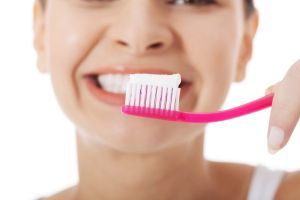Publications in June 2017 - Chitosan-based coatings for dental implants

The development of a strong bond between implant surface and the surrounding bone substance, called osseointegration is important for successful integration of a dental implant. The coating of dental implants with chitosan is a promising approach to enable an accelerated and improved integration. In the following, we present two publications about chitosan-based coatings for dental implants.
Gallium-modified chitosan/poly(acrylic acid) bilayer coatings for improved titanium implant performances
Bonifacio M. A., Cometa S., Dicarlo M. et al. Carbohydrate Polymer, 166, 348–357, June 2017. doi: 10.1016/j.carbpol.2017.03.009.
Major reasons for failure of dental titanium-based implants are microbial colonization and resulting biofilm formation. The researchers from Italy, applied a poly(acrylic acid) (PAA) layer by electropolymerization followed by electrochemical deposition of a chitosan-gallium layer on a titanium surface. The aim was to improve biocompatibility and reduce the risk of infection. For manufacturing of coatings, chitosan HCl (DDA 86.4%, viscosity 4 mPa s, Mw= 60-80 kDa) by Heppe Medical Chitosan GmbH was applied. The PAA/Chitosan-Ga bilayers were characterized and antibacterial activity as well as compatibility with MG63 human osteoblast-like cells was tested.
RESULTS
- Material flexibility was not limited by the coating
- Release of gallium had an antibacterial effect (reduced viable cell counts of E. coli and P. aeruginosa of 2 and 3 log cfu/sheet after 24 h)
- Prevention of biofilm formation
- MG63 osteoblast-like cells were not negatively affected by PAA/Chitosan-Ga bilayers
- Gallium upregulated bmp2 (early marker for osteoblastic differentiation)
Conclusion: The application of a Gallium-releasing chitosan/poly(acrylic acid) bilayer coating on titanium implants prevents microbial colonization without influencing osseointegration of the implant.
Source:www.ncbi.nlm.nih.gov/pubmed/28385242
Towards Bioactive Dental Restorative Materials with Chitosan and Nanodiamonds: Evaluation and Application
S. R. Grobler, V. T. Perchyonok, R. Mulder, D. Moodley. International Journal of Dentistry and Oral Science. 2(9), 147-154, September 2015
Functionalisation of dental materials with different bioactive compounds has beneficial effects, as shown by several publications. Researchers from South Africa and Australia investigated dental composites improved by bioactive substances like chitosan (87% DDA) and cyclodextrin in combination with nanodiamonds. Utilization of chitosan has several advantages like biocompatibility, biodegradability and muco-adhesive properties. In contrast, nanodiamonds are very stable, stiff and hard.
Following combinations with Premise by Kerr (standard control dental material) were investigated:
- 10% nanodiamonds/Premise
- 10% chitosan/Premise
- 10% cyclodextrin/Premise
- 10% chitosan/nanodiamonds/Premise
- 10% cyclodextrin/nanodiamonds/Premise
Composites were tested regarding their dentin bond strength, volumetric shrinkage, Vickers hardness and cytotoxicity.
Results
- Improved shear bond strength for Premise with nanodiamonds, chitosan, cyclodextrin (CD) or combinations after 3 month
- Following order for Vickers hardness was determined: CD<nanodiamonds<CD nanodiamonds<Premise<Chitosan nanodiamonds
- Beneficial effect of chitosan on survival rate of mouse 3T3 fibroblast cells
- Minimal cytotoxicity of nanodiamonds and chitosan + nanodiamonds
- Shrinkage was lower for composites compared to Premise alone
Conclusion: Modification of dental implants with nanodiamonds, chitosan, cyclodextrin and combinations of thereof might have beneficial effects on shear bond strength and volume shrinkage. In addition, chitosan positively influences cell survival of mouse 3T3 fibroblast cells.
Biofilm, coating, layer, implant, antibacterial, Chitosan HCl


